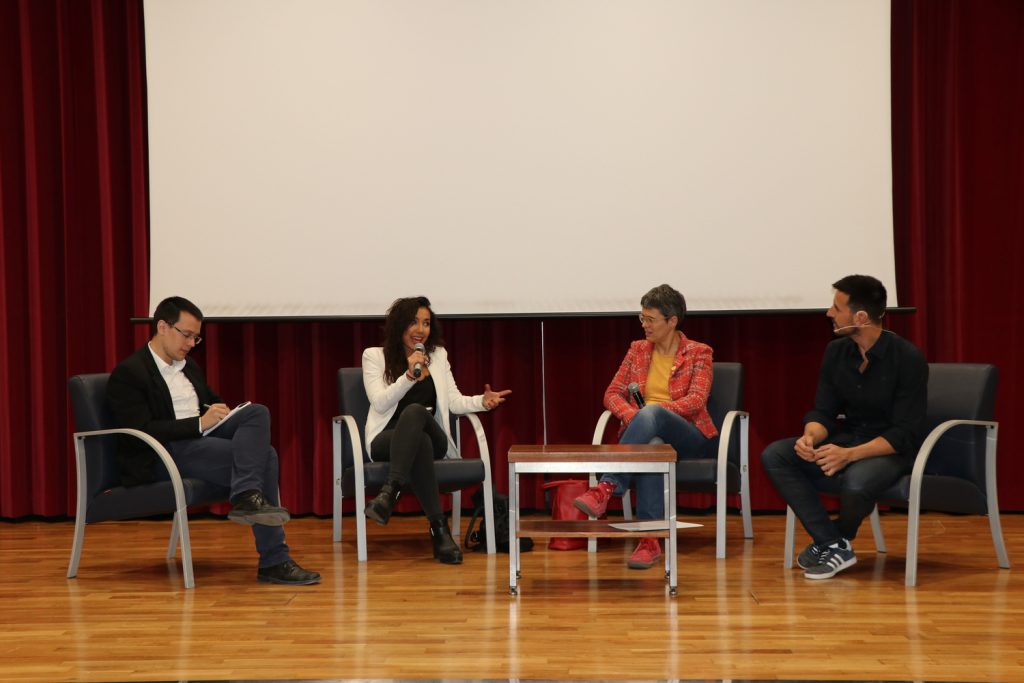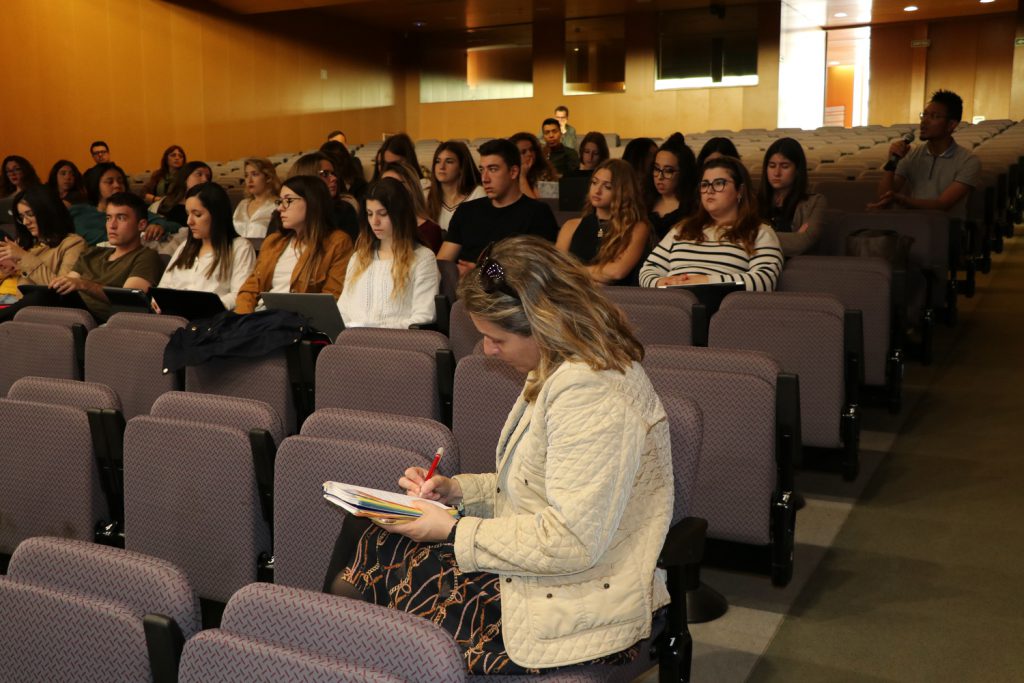25/03/2019
The debate on the EU brings out the crisis of expectations with the European project
URV speakers call on young people and students to change institutions from within focusing on the elections which are held on 26 May

URV speakers call on young people and students to change institutions from within focusing on the elections which are held on 26 May
What would happen if the European Union disappeared? This question has been the starting point of the debate that took place this afternoon at the Catalunya campus to challenge young people and students for the European elections on 26 May. The speakers ‘and students’ interventions have highlighted the crisis of expectations with the European project, especially the response and management of the European institutions to the economic crisis and the migration crisis. The solution is to promote change from within, as agreed by the participants at the round table: Jaume Camps, researcher at the Center for Social Conflict Studies; Neus Oliveras, professor of Public Law, and Mariam Lufti, Alumni of the Faculty of Legal Sciences and student of the Master in European Interdisciplinary Studies at the College of Europe in Warsaw (Poland).
The low participation of young people in the European elections (only 26% went to vote in Spain in the elections in 2014) has motivated today’s debate organized by the Barcelona Office of the European Parliament and Europe Direct Tarragona with the collaboration of the URV. Some causes have surfaced through the participation of both students and the speakers themselves. On the one hand, the ignorance of the operation of the institution or, as a matter of fact, the unawareness of people of how daily decisions of Europe affect them. Students like Núria have stated that until they have arrived at the University, their knowledge about the EU “was very basic and limited”, to which we must add the way of information consumption, basically through social networks.

The rights achieved and the founding values of the EU have also been put on the table. Another student, Karima, explained that the young people of her generation take certain rights for granted, which, on the contrary, Moroccan migrants like her consider it necessary to claim: “I value women’s rights more, the freedom to go wherever you want without fear, not feel discriminated against, dress as you want, drive … because the culture where I come from makes all the advantages of being European positive “.
Precisely the values have been questioned by the participants of the debate when they have not been respected in the decision-making and management of the economic crisis and the migration that Europe has experienced in recent years. “Many policies are contradictory with European values, such as the Schengen area,” said another student, Lucia.
The three speakers, moderated by the journalist Jordi Gil, have agreed to give a unitary response to this malaise: “What we must consider is how we are going to change the EU from within and how we remake the euro to avoid even greater inequalities, because all that affects the coexistence “, has summed up Jaume Camps.
